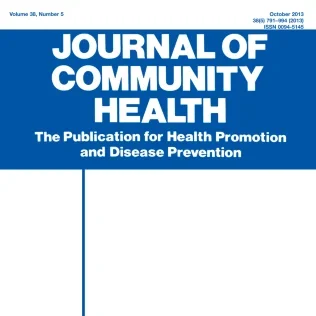Rapid assessment of nutrition services in Los Angeles substance use disorder treatment centers
By David A. Wiss, Maria Schellenberger, & Michael L. Prelip

Substance abuse continues to increase, creating a devastating impact on individuals, families, communities, and the healthcare system. The evolving opioid crisis will require a reassessment of entrenched treatment protocols for addictive disorders. It is well established that SUDs are associated with neglected health, including nutritional deficiencies. Emerging evidence supports the positive impact of nutrition interventions during recovery from alcohol and drug abuse, but more data are needed. SUD treatment protocols may benefit from nutrition intervention as a treatment modality. Registered Dietitian Nutritionists are qualified to provide nutrition education and counseling in substance use disorder treatment facilities but are represented at < 7% of facilities in Los Angeles. There is a timely need to incorporate novel approaches to treatment and recovery, particularly in outpatient settings.
Subscribe for weekly insights and research exploring the link between nutrition & mental health.
Abstract
The objective of this study was to determine the prevalence of nutrition services and utilization of registered dietitian nutritionists at substance use disorder treatment centers in Los Angeles.
This cross-sectional descriptive study utilized phone interviews with facilities within a 25-mile radius of the Los Angeles metropolitan area using the Substance Abuse and Mental Health Services Administration Treatment Services Locator to identify facilities that included a listing of substance abuse as primary focus of care (n = 128). Facilities were asked if they offered any kind of nutrition services, the type of services that were offered, and the credential of the professional providing the services.
We compared facilities that offered a residential level of care to those offering outpatient services only. The Fisher’s exact test was used to determine statistical significance. The study showed that only 39 sites (30.5%) offered any type of nutrition services on site, and the odds of a residential level of care offering nutrition services was 2.7 times higher than outpatient only facilities (p = 0.02). Of the 39 facilities offering nutrition services, only 8 (20.5%) utilized a registered dietitian nutritionist.
Overall fewer than 7% of the facilities utilized the services of a dietitian. Recovery programs for substance use disorder should consider using a registered dietitian nutritionist as a member of the treatment team, which may contribute to better clinical outcomes.